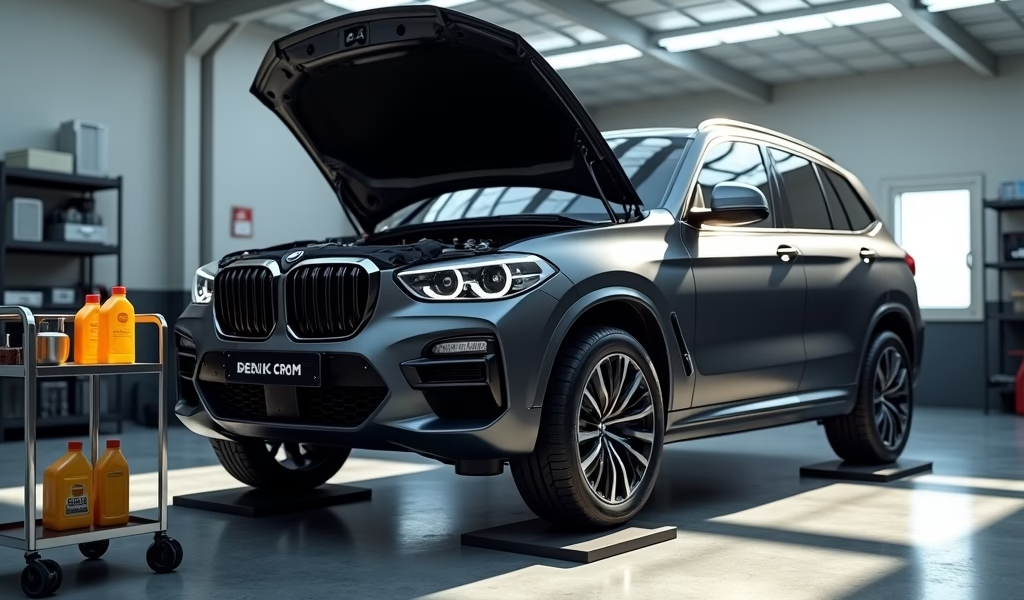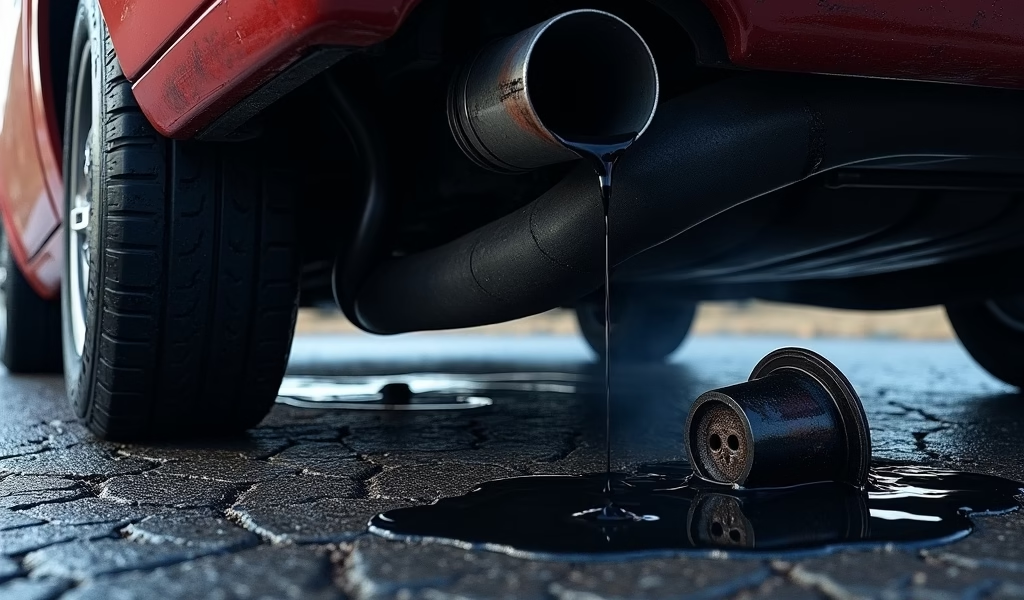Overview
This article explains how proper motor oil selection and regular maintenance can prevent mechanical failures that contribute to deadly rollover accidents, highlighting five recommended oil brands and maintenance best practices. It also covers legal considerations following rollover accidents and emphasizes that preventative maintenance isn’t just about extending vehicle life but potentially saving lives.
Table of Contents
- Understanding Rollover Accidents and Mechanical Failures
- The Importance of Motor Oil in Preventing Mechanical Failures
- What to Look for in Quality Motor Oil
- The 5 Best Car Oils to Prevent Mechanical Failures
- Maintenance Schedule and Best Practices
- Legal Considerations After a Rollover Accident
- How Knows Your Car Can Help
- Conclusion: An Ounce of Prevention
- Frequently Asked Questions
When it comes to staying safe on the road, most folks think it’s all about keeping their eyes peeled and their hands at ten and two. But here’s the kicker – what’s happening under your hood matters just as much as what’s happening behind the wheel. As someone who’s spent decades elbow-deep in engines, I can tell you that proper maintenance isn’t just about keeping your ride purring like a kitten – it could be what stands between you and a serious rollover accident.
Every year, about 7,600 people lose their lives in rollover accidents across America. That’s not just a statistic – that’s 7,600 families changed forever. What might surprise you is that mechanical failures contribute to roughly 18% of these tragic incidents. When your engine seizes up at 65 mph, it’s like pulling the rug out from under your feet – except you’re in a two-ton metal box traveling down the highway.
If your vehicle has failed you in such a devastating way, consulting with a qualified auto wreck lawyer might be necessary. But today, we’re focusing on prevention – specifically, how choosing the right motor oil can keep your engine from becoming your worst enemy on the road.
Understanding Rollover Accidents and Mechanical Failures
Think of a rollover as the automotive equivalent of a boxer getting knocked flat on their back – except much more dangerous. These accidents happen when a vehicle tips onto its side or roof, often during sharp turns, sudden maneuvers, or after hitting obstacles. They’re particularly nasty customers, accounting for only about 3% of all serious crashes but causing over 30% of passenger vehicle fatalities, according to the National Highway Traffic Safety Administration.
While many rollovers stem from things like excessive speed or poor road conditions, mechanical failures can turn an everyday drive into a fight for survival. Picture this: You’re cruising down the highway when suddenly your engine locks up tighter than a drum. In that split second of panic, even experienced drivers might overcorrect, sending their vehicle into a roll.
Common mechanical issues that can trigger rollovers include:
- Engine seizures (often due to inadequate lubrication)
- Steering system failures
- Brake malfunctions
- Suspension component breakage
- Catastrophic tire failures
If you’ve been in such a situation, a motor vehicle accident lawyer can help you navigate the complex aftermath. But our focus today is keeping that engine running smooth as silk to prevent problems before they start.
The Importance of Motor Oil in Preventing Mechanical Failures

Let me paint you a picture. Your engine is like a bustling city with thousands of metal citizens, all rubbing shoulders at incredible speeds. Without proper lubrication, it’s like taking away all the cushioning in that city – metal meets metal, friction builds faster than gossip in a small town, and before you know it, things are heating up in all the wrong ways.
Quality motor oil is the unsung hero in this story. It’s not just slippery stuff – it’s a sophisticated blend of base oils and additives that:
- Creates a protective film between moving parts (like that friend who keeps the peace at parties)
- Whisks away heat from combustion and friction (your engine’s personal cooling system)
- Carries dirt and debris to the oil filter (think of it as your engine’s housekeeping service)
- Prevents corrosion and rust (keeping those metal parts looking and working like new)
- Helps seal the space between piston rings and cylinder walls (maintaining that all-important compression)
When your oil fails at any of these jobs – whether it’s broken down from age, contaminated with debris, or simply the wrong type for your vehicle – your engine components start throwing a tantrum. And when engines throw tantrums at highway speeds, bad things happen. Fast.
What to Look for in Quality Motor Oil
Not all motor oils are created equal, and choosing the right one is more complicated than picking the fanciest bottle on the shelf. It’s like dating – compatibility matters more than packaging!
First things first, you’ll need to decode those mysterious numbers on oil containers. Take 5W-30, for example. The “5W” refers to how the oil flows in cold weather (the W stands for winter). Lower numbers mean better cold-start protection – crucial for those mornings when it’s cold enough to freeze the ears off a brass monkey. The “30” tells you about the oil’s thickness at operating temperature. Your owner’s manual will specify which viscosity grade is right for your vehicle, and ignoring this recommendation is like wearing flip-flops to a snowball fight – technically possible, but a terrible idea.
Then comes the synthetic versus conventional debate. Conventional oils are like your dependable old buddy – they’ll get the job done at a reasonable price. Synthetic oils, however, are engineered at the molecular level for superior performance – they’re like that friend who somehow excels at everything and makes it look easy. They offer better protection in extreme temperatures, resist breakdown longer, and generally outperform conventional oils. The downside? They’ll cost you more – sometimes twice as much.
For most modern vehicles, especially those with turbocharged engines or that operate in extreme conditions, synthetic oil is worth every penny. It’s like insurance – you might not see the benefits every day, but when things get tough, you’ll be mighty glad you invested.
The 5 Best Car Oils to Prevent Mechanical Failures
After years of getting my hands dirty and seeing which oils hold up when the going gets tough, here are my top picks for keeping your engine running smoothly and helping prevent the kind of mechanical failures that can lead to rollover accidents:
1. Mobil 1 Extended Performance Full Synthetic
If motor oils were superheroes, Mobil 1 would be wearing the cape. This stuff is engineered to protect your engine for up to 20,000 miles between changes (though I still recommend following your manufacturer’s intervals). What makes it special is its exceptional temperature tolerance – it flows like a dream in arctic conditions but maintains its protective properties when your engine’s running hotter than a jalapeño contest.
The advanced cleaning agents in Mobil 1 are particularly effective at preventing sludge buildup – that nasty, engine-clogging gunk that can block oil passages faster than rush hour traffic. For preventing catastrophic engine failure that could lead to a rollover situation, it’s hard to beat this premium option.
2. Valvoline High Mileage with MaxLife Technology
Got a veteran vehicle with more miles than your favorite pair of jeans? Valvoline’s High Mileage formula is like a rejuvenation spa for aging engines. The magic here is in the seal conditioners that help revitalize hardened engine gaskets and seals, reducing the risk of oil leaks that can lead to sudden oil pressure loss and engine seizure.
It also packs extra detergents to clean out the carbon deposits that accumulate over the years – like spring cleaning for your engine’s insides. For older vehicles, which statistically face higher risks of mechanical failure, this specialized formula can be a literal lifesaver on the road.
3. Pennzoil Ultra Platinum Full Synthetic
Pennzoil’s top-tier synthetic is unique because it’s made from natural gas rather than crude oil (a process they call PurePlus Technology). The result is an exceptionally pure base oil with fewer of the impurities found in conventional crude-based oils. This translates to better protection against horsepower loss and engine wear over time.
What impresses me most about this oil is its cleanliness – engines running Pennzoil Ultra Platinum tend to stay remarkably free of deposits, even after extensive mileage. Clean engines run cooler and more efficiently, reducing the risk of overheating-related failures that can leave you stranded – or worse, cause you to lose control at a critical moment.
4. Royal Purple High Performance Synthetic
Royal Purple has developed something of a cult following among performance enthusiasts, and for good reason. Their proprietary Synerlec additive technology creates a stronger, more tenacious oil film than conventional oils, providing exceptional protection during high-stress driving scenarios – like when you need to make a sudden evasive maneuver.
Where this oil really shines is in reducing internal friction, which translates to improved fuel economy and horsepower. More importantly for our discussion, it excels at preventing metal-to-metal contact during cold starts – when up to 80% of engine wear typically occurs. Less wear means longer engine life and reduced risk of sudden failure when you need your vehicle to respond predictably.
5. Castrol EDGE Advanced Full Synthetic
Castrol’s flagship oil boasts what they call “Fluid Titanium Technology” – fancy marketing speak that actually delivers the goods. Under extreme pressure (like when your engine is working harder than a one-armed wallpaper hanger), this oil physically changes its structure to provide an extra cushion of protection.
The real-world benefit? It maintains protective viscosity even under the severe stress of modern stop-and-go driving. This is particularly important for preventing the kind of engine seizure that can occur when oil thins out too much under extreme conditions. When your life might depend on your vehicle responding predictably in an emergency situation, that extra margin of protection is worth its weight in gold.
Maintenance Schedule and Best Practices

Even the finest motor oil in the world can’t work miracles forever. Think of oil changes like sleeping – you can’t just do it once and be set for life! Most modern vehicles using synthetic oil can go 7,500 to 10,000 miles between changes, but this varies wildly depending on your driving conditions and vehicle type.
Your owner’s manual isn’t just extra padding in your glove compartment – it’s your vehicle’s bible, containing the gospel of maintenance according to the engineers who designed your car. Their recommended service intervals take into account your specific engine’s design, tolerances, and needs. Follow them religiously.
Beyond scheduled changes, keep an eye out for these warning signs that your oil needs attention sooner rather than later:
- Oil looking darker than a moonless night and feeling gritty between your fingers
- Engine making more noise than a toddler with a drum set, especially ticking sounds
- Check engine light doing its best impression of a Christmas tree
- Fuel economy dropping faster than temperatures in December
- Engine compartment smelling like something’s cooking (and not in a good way)
Remember, oil is just one piece of the maintenance puzzle. Regularly servicing your braking system, steering components, and suspension is equally crucial in preventing rollover accidents. Think of it as a chain – it’s only as strong as its weakest link.
For those who treat maintenance schedules as mere suggestions, consider this sobering thought: Consumer Reports estimates that proper maintenance can extend your vehicle’s life by up to 200,000 miles. That’s not just money saved – that’s potentially life-saving reliability when you need it most.
Legal Considerations After a Rollover Accident
Despite your best maintenance efforts, the unthinkable sometimes happens. If you’ve experienced a rollover accident potentially caused by a mechanical failure, the aftermath can be as complicated as a Rubik’s cube in the dark. This is when a car crash attorney becomes invaluable.
Here’s the deal: mechanical failures resulting from manufacturing defects or improper service may constitute negligence. In plain English, this means the manufacturer or the service shop might be legally responsible for what happened to you. But proving this isn’t as simple as pointing fingers – you’ll need evidence stronger than your grandmother’s coffee.
If you suspect a mechanical failure contributed to your accident, preserve these critical pieces of evidence:
- Maintenance records (every oil change receipt, service report, and repair order)
- Photographs of the accident scene and vehicle (from every angle, like you’re documenting a crime scene – because legally, you might be)
- Witness statements (people forget details faster than kids forget homework)
- Medical records documenting injuries (these connect the dots between the accident and your suffering)
A specialized rollover accident lawyer can evaluate whether you have a case against a vehicle manufacturer, parts supplier, or maintenance facility. These legal eagles understand the complex dance between personal injury law and automotive engineering – expertise that’s worth its weight in gold when your future is on the line.
Remember, there are strict time limits (statutes of limitations) for filing claims, so consulting with a lawyer promptly after an accident is crucial. Many offer free initial consultations, so you have nothing to lose by exploring your options.
How Knows Your Car Can Help
At Knows Your Car, we’re not just passionate about vehicles – we’re obsessed with keeping them (and you) safe on the road. We’ve developed technology that makes tracking maintenance as easy as scrolling through social media – but far more rewarding.
Our app is like having a mechanic in your pocket, minus the greasy fingerprints. It reminds you when your vehicle needs attention, helps you understand what those mysterious dashboard lights actually mean, and connects you with qualified mechanics who won’t treat your wallet like an all-you-can-eat buffet.
But we don’t just help you maintain your car – we help you understand it. Because when you understand what’s happening under the hood, you’re more likely to give your vehicle the care it deserves. And that means you’re less likely to experience the kind of mechanical failure that can lead to a rollover accident.
Our digital maintenance tracking means no more trying to remember when you last changed your oil or replaced those brake pads. The app keeps a complete service history that can prove invaluable if you ever need to demonstrate that you properly maintained your vehicle – something that could be crucial in a legal situation following an accident.
If you’re curious to learn more about how our technology can help keep you safe on the road, swing by our website. Your car might know when something’s wrong – but Knows Your Car helps you understand what it’s trying to tell you.
Conclusion: An Ounce of Prevention
As the saying goes, “An ounce of prevention is worth a pound of cure” – and nowhere is this more true than in vehicle maintenance. The right motor oil is like insurance for your engine – it seems like a mundane detail until the moment it saves you from disaster.
We’ve covered a lot of ground today – from understanding rollover accidents to choosing the best oil to legal considerations if the worst happens. But the takeaway is simple: regular maintenance with quality products isn’t just about extending your vehicle’s life or saving money on repairs – it could be what prevents a catastrophic mechanical failure that leads to a life-changing accident.
Remember, your vehicle is a complex system of interdependent parts, all working together to get you safely from point A to point B. Quality motor oil is the lifeblood of this system, ensuring everything runs smoothly when you need it most – like when you have to make a split-second decision on the highway.
At Knows Your Car, we believe that modern technology can bridge the gap between car owners and mechanics, creating a positive impact on vehicle health and safety. Our mission is to enhance the well-being of cars and their owners by making maintenance care accessible and understandable.
So next time you’re due for an oil change, remember: you’re not just maintaining your car – you’re potentially saving lives. Yours included.
Frequently Asked Questions
How do I know if I need a rollover accident lawyer?
If your rollover accident involved mechanical failure, severe injuries, or potential vehicle defects, you likely need a specialized attorney. A good lawyer can determine if negligence from manufacturers or service providers contributed to your accident.
What makes rollover accidents different from other types of crashes?
Rollover accidents have a higher fatality rate than most other crash types, with vehicles tipping onto their sides or roofs. They often involve complex physics related to a vehicle’s center of gravity and can result from mechanical failures, sudden maneuvers, or external factors.
Can using the wrong motor oil really cause an accident?
Absolutely – using incorrect oil can lead to accelerated engine wear, inadequate protection, and potentially catastrophic engine failure at speed. This sudden power loss can cause a driver to lose control, potentially resulting in a rollover.
How long do I have to file a lawsuit after a rollover accident?
The statute of limitations varies by state, typically ranging from one to four years after the accident. Consult with an attorney as soon as possible to ensure you don’t miss critical deadlines.
Can vehicle maintenance records help my case after a rollover accident?
Comprehensive maintenance records can be crucial evidence in proving you properly cared for your vehicle. These documents help establish whether mechanical failure resulted from manufacturing defects rather than neglect, potentially strengthening your legal case.

